Next month will mark two years since Vladimir Putin launched his 'special military operation' against Ukraine, a country with which he had already been at war for eight years after the annexation of Crimea. His intention was to demilitarize the neighboring country in a matter of days. However, the invasion stalled and Russian troops failed to enter kyiv. The impetus of Ukrainian soldiers first, and Western support later, forced a withdrawal that has confined the fighting to the eastern region of Donbas and forces Russia to attack the rest of the country with missiles and drones.
In short, the war has become bogged down. But that doesn't mean that people don't continue to die on the front lines. On the contrary: the battles are intense and, although neither side recognizes it, their casualties are numerous. For this reason, recruiters work hard to find soldiers even under the stones. In the case of Russia, even outside its borders: the country offers nationality to anyone willing to fight against Ukraine.
Therefore, today we return to the Slavic battlefield.
These are the three topics we will address today:
-
Nationality after risking one's life.
-
Elections in Taiwan: a dangerous triangle with China and the United States.
-
Bangladesh catches fire again at the polls.
-
A stagnant war
Nationality after risking one's life
Any foreigner who is willing to fight for Russia for at least a year now has the right to claim the nationality of the largest country in the world. This was decreed last Thursday by Russian President Vladimir Putin. He is running out of soldiers to send to the meat grinder that the Ukrainian front has become and wants to avoid another mass mobilization before an election in which, however, he already knows that he will win. For now, what it has done has been to raise the age at which one year of mandatory military service must be completed to 30 years and increase Army salaries to increase its ranks by 170,000 men and leave them with more than 1.3 million.
Russian army parade in Moscow.
Reuters
According to official figures, 452,000 troops enlisted in 2023, attracted by a salary that multiplies the national average by four. But they are still not enough and, according to the new regulation, to access nationality it will be necessary to sign an employment contract with the Army or with some Russian 'military formation', in reference to paramilitary groups such as Wagner's mercenaries. Taking into account the high probability of losing one's life on the front – US intelligence states that 90% end up dead or wounded – the incentive lies in the fact that both parents and direct descendants can claim Russian citizenship.
From a European perspective, it may seem like a bad deal. A sacrifice so that others can achieve a goal that is not very desirable either. But we must keep in mind that, despite the fact that its standard of living is very far from what we enjoy in Western Europe, Russia is a regional power that has a lot of pull among Central Asian countries. And, according to different media outlets, also in countries further away from its sphere of influence, such as Cuba or Nepal. Unfortunately, the usual opacity of the Russian regime will prevent us from knowing with certainty how many foreigners the initiative attracts.
The leader of the Wagner mercenaries, Yevgeny Prigozhin, took a shot at Putin and lost him.
AFP
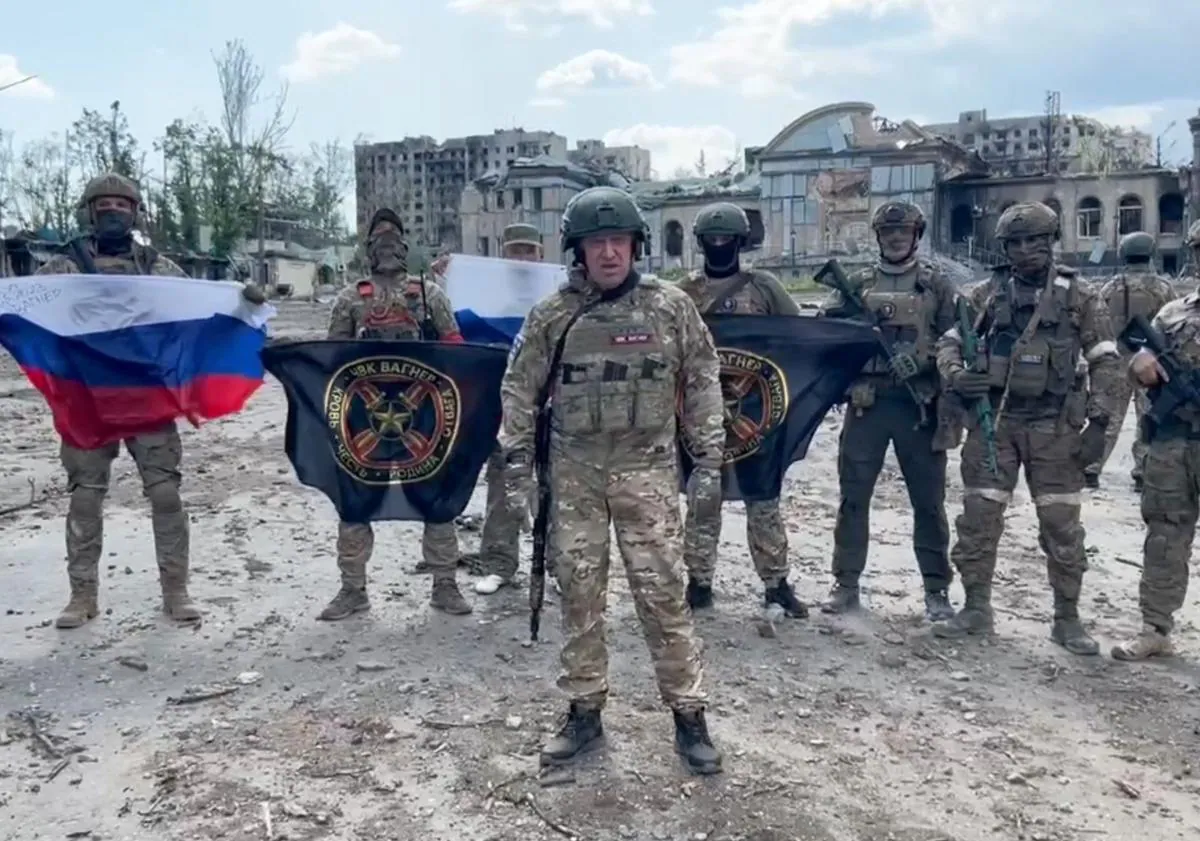
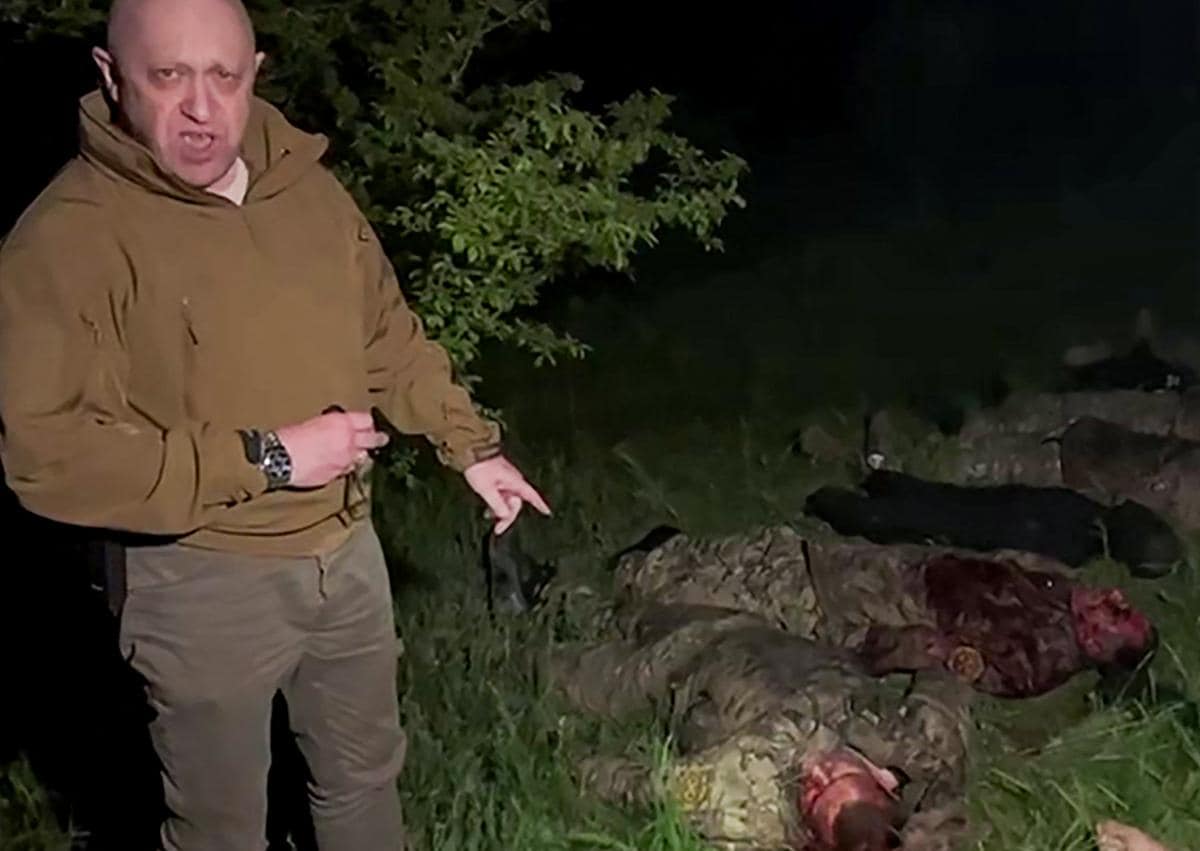
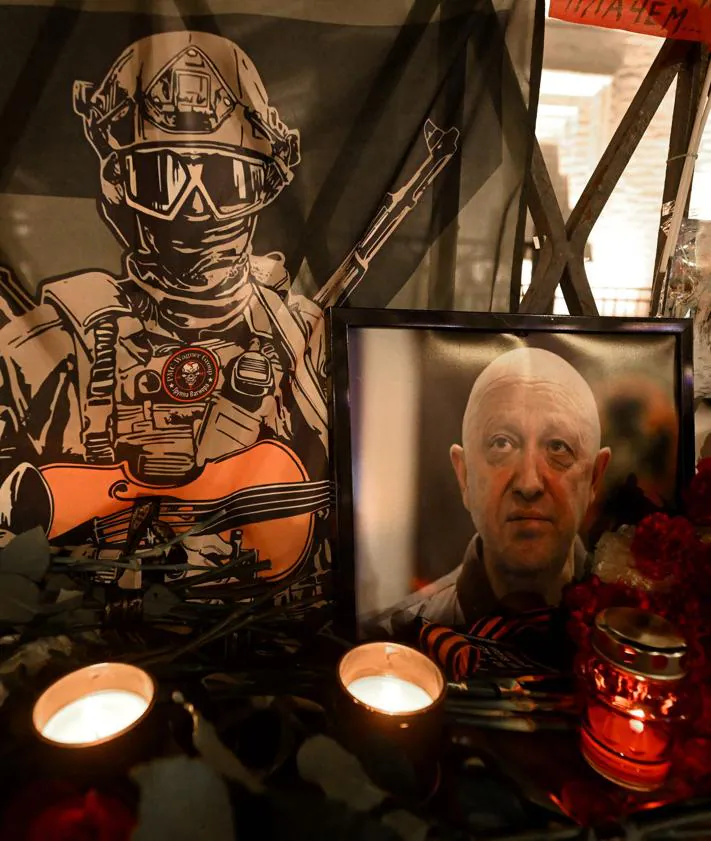
In any case, in Ukraine they have a similar problem. Zelensky himself stated that he needs about 500,000 more soldiers to continue containing Russia's pressure, but he has refrained for the moment from making a large mobilization. The Government has not yet decided whether it will hold the presidential elections that should take place in the spring, and that could pose a significant obstacle to forced enlistment, which always causes great social tensions. Because, although a small group of people is always willing to voluntarily give their lives for their country, the majority must be offered other incentives or forced. In general, people want to live.
-
Between chips and threats of invasion
Elections in Taiwan: a dangerous triangle with China and the United States
Every time presidential elections are held in Taiwan, the government in China gets angry. Firstly, because its mere organization reveals one of the great political shortcomings of the Asian giant. Ultimately, the island reflects what China could have been if it had transitioned to democracy: a free, vibrant and advanced society, embracing the world and in which ideas can circulate freely.
But, above all, what is burning in Beijing is that the pro-independence supporters of the Democratic Progressive Party (PDP) can retain the presidency for one more term. For this reason, the electoral campaign is usually always accompanied by threats, more or less veiled, of a possible invasion. Because, although the Communist Party of China has never governed the former Formosa, it considers it an indivisible part of the People's Republic, while Taiwan prefers to maintain its official name of Republic of China and remain 'de facto' independent, although most of the planet does not recognize it like that.
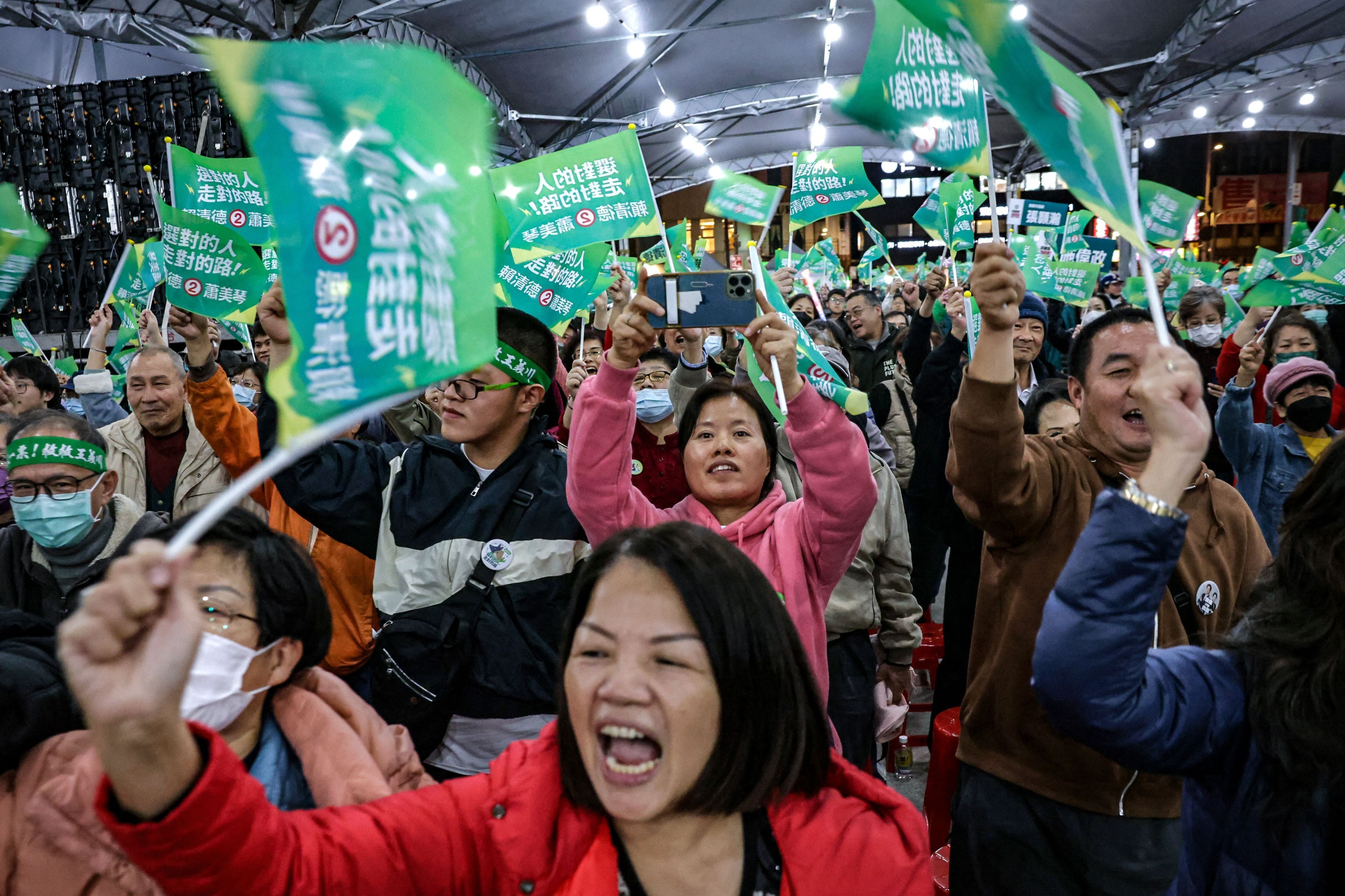
Election rally in Taiwan, an image that will not be seen in China.
AFP
It's a mess, yes. A mess whose impact transcends the 24 million inhabitants of the territory. Because many consider that it could be the fuse that lights the war between China and the United States, that it should come to the aid of Taiwan if it is attacked, and because, without reaching that extreme, any blockade can cause a monumental headache in the industry. global, since companies in the rebel province manufacture around 70% of the world's chips. Without them, technological advances would come to a screeching halt.
So far, the blood has never reached the river. But clashes in the Strait are becoming more frequent. The Taiwan Air Force intercepts Chinese fighters day in and day out, US warships often encounter those of its arch-enemy in the region, and in megalomaniacal naval exercises China carried out a drill in which it isolated the entire island. Notice to sailors, never better said.
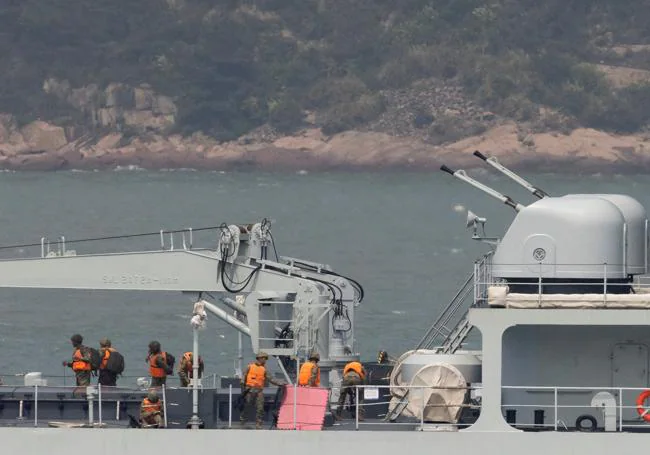
China's military exercises try to intimidate Taiwan.
Reuters
This is the juncture when Taiwanese will go to the polls this Saturday. They will have to choose between the more confrontationist position of the PDP, although it has already made it clear on different occasions that it will not declare the country's independence, and the more conciliatory of the conservative Kuomintang, which seeks a more pragmatic relationship with China, although its leaders have already clarified that this does not mean seeking reunification.
-
Controversial elections
Bangladesh catches fire again at the polls
And from elections that threaten controversy to others that have already materialized: Bangladesh went to the polls last Sunday and re-elected the controversial prime minister, Sheikh Hasina, for her fourth consecutive term. The problem is that few believe that the elections were clean, since the main opposition party called for a boycott and participation was only 40% -less than half of the previous event-, many of their detractors have been arrested or intimidated during the electoral campaign and some have even been murdered – there have been 16 deaths during the electoral process – after leaving the polling station where they were voting.
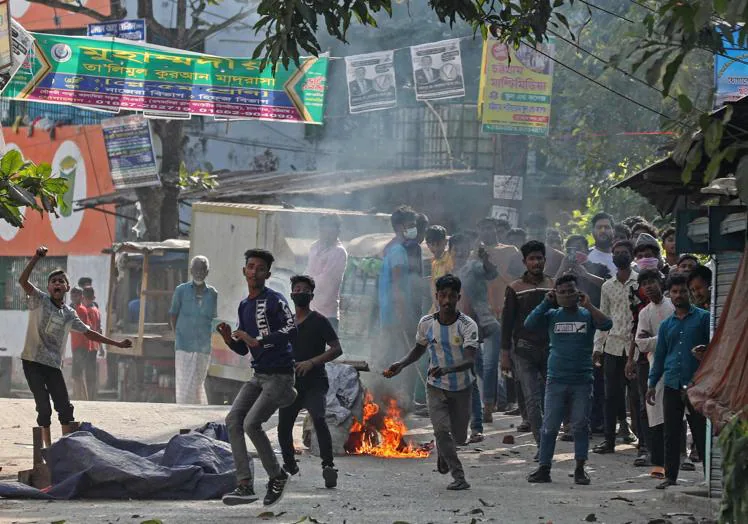
Protests in Bangladesh have left several dead during the elections.
AFP
This confirms yet another authoritarian drift. According to human rights organizations, some 25,000 dissidents have been detained in Bangladesh since last October, and ten have died in custody. “Democracy took a lot to establish in Bangladesh and it should not become something cosmetic,” said UN High Commissioner for Human Rights Volker Türk. Unfortunately, that is something that can be seen in many other countries.
Is all for today. I hope I have explained well some of what is happening out there. If you are signed up, you will receive this newsletter every Wednesday in your email. And, if you like it, it will be very helpful if you share it and recommend it to your friends.
#kill #Ukrainians #Russian

